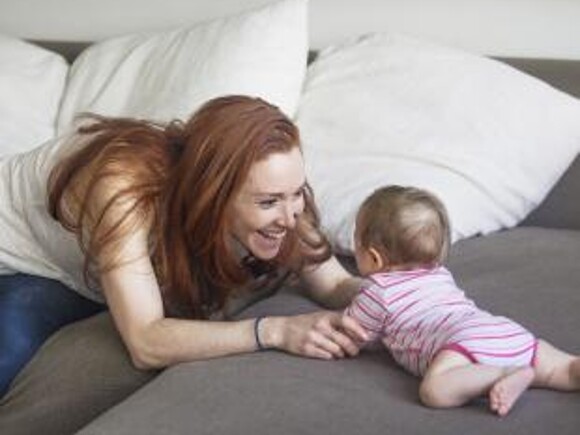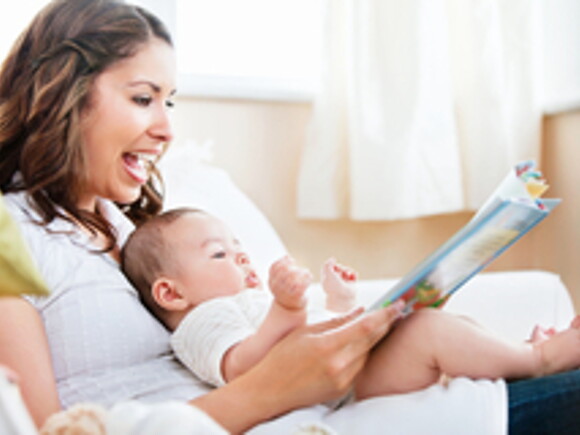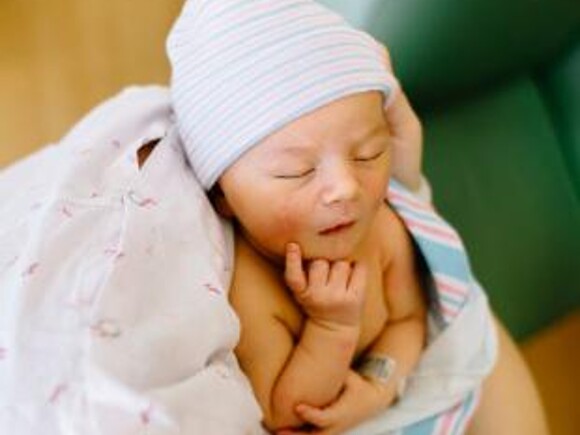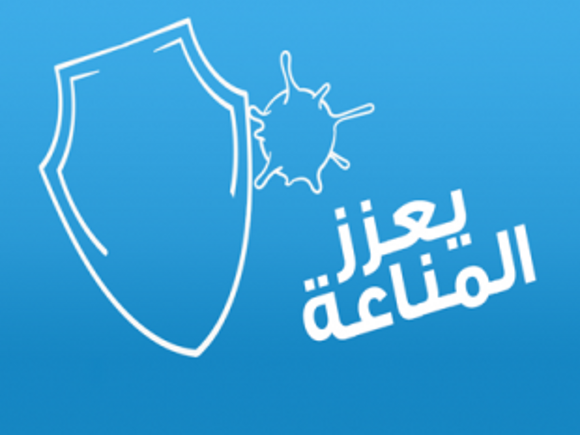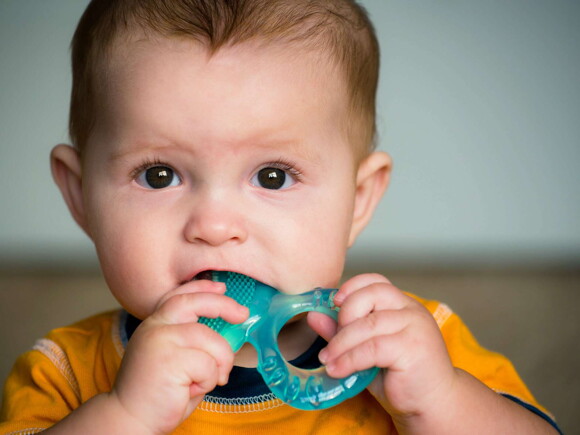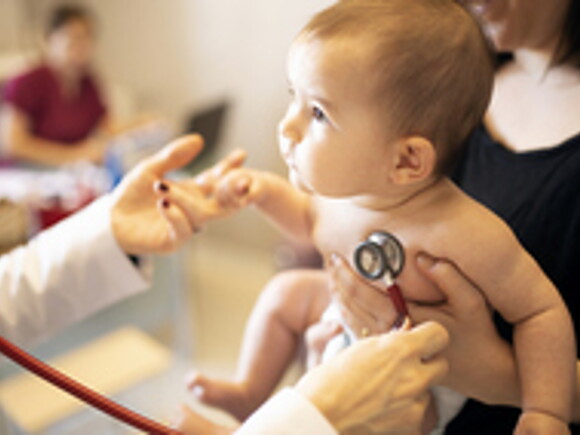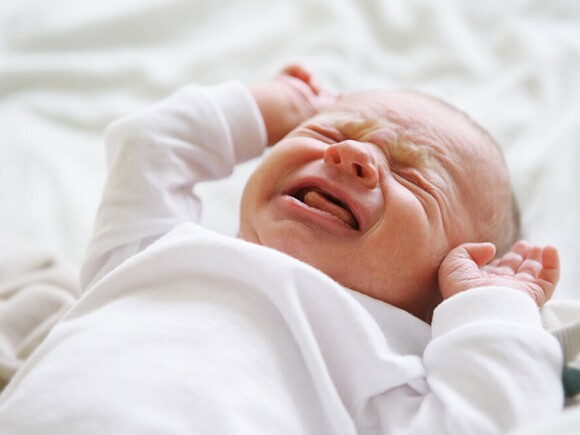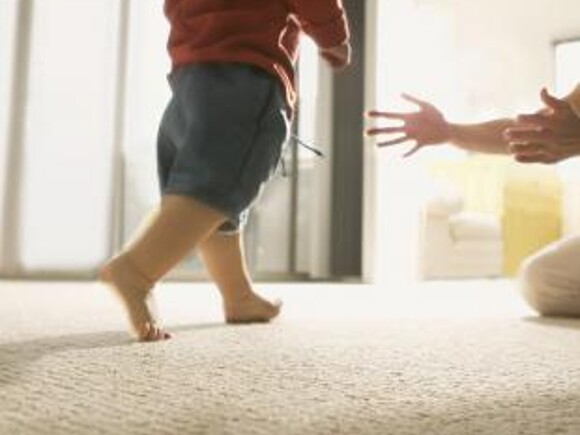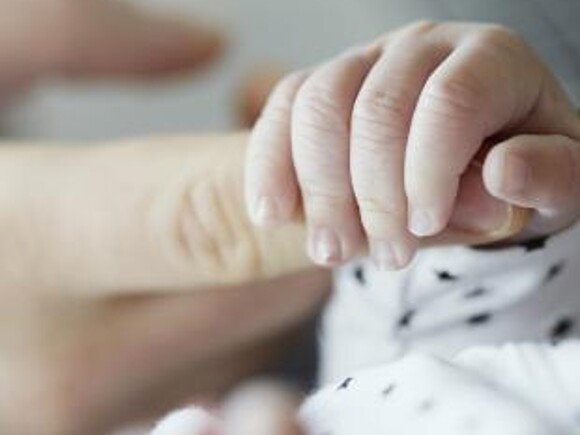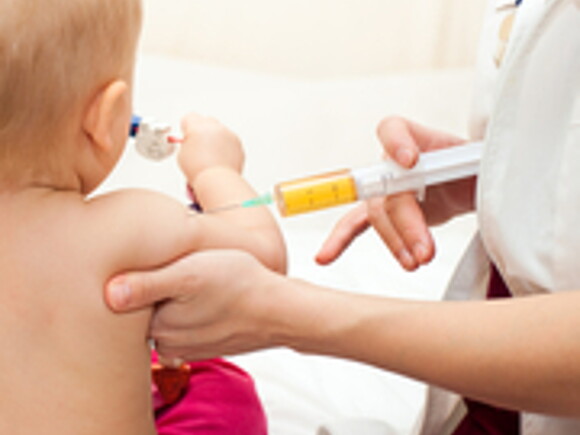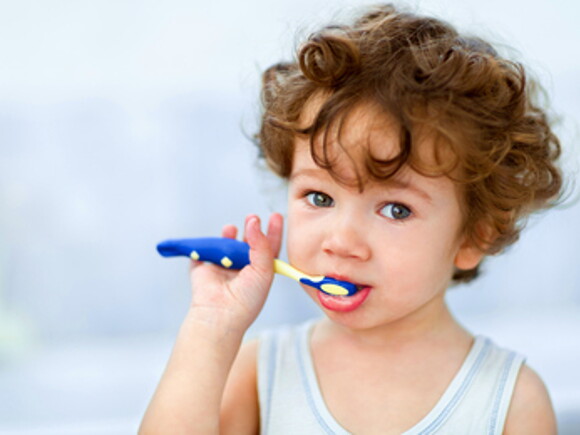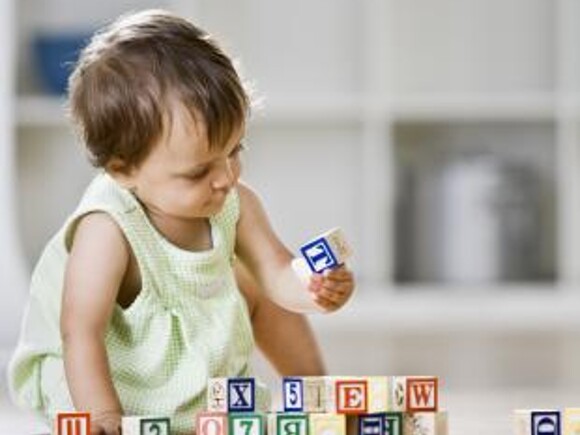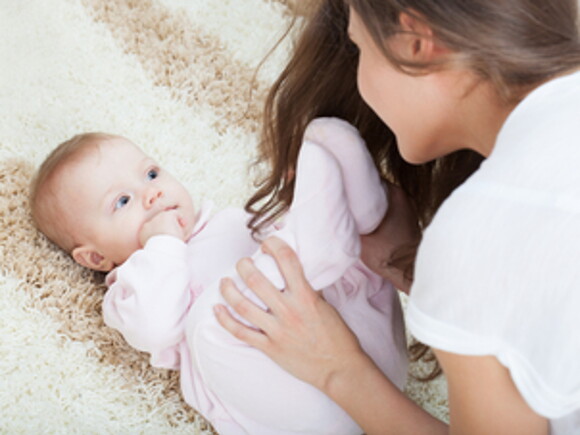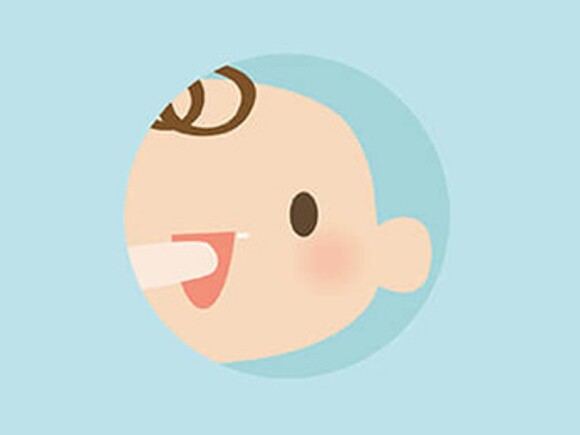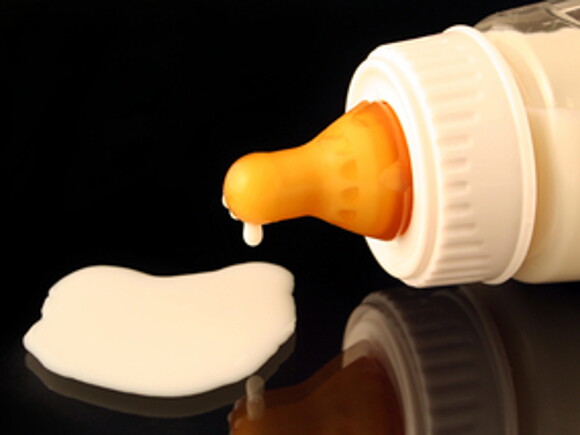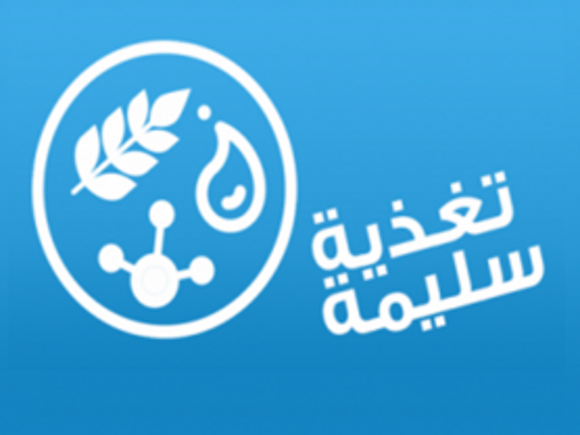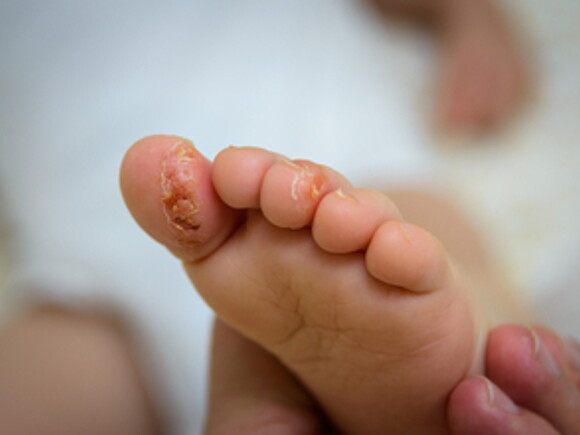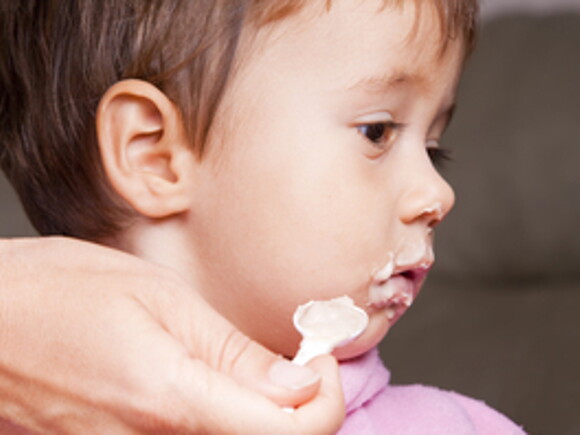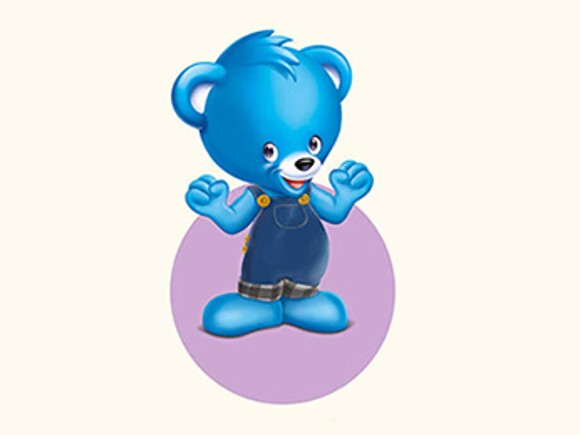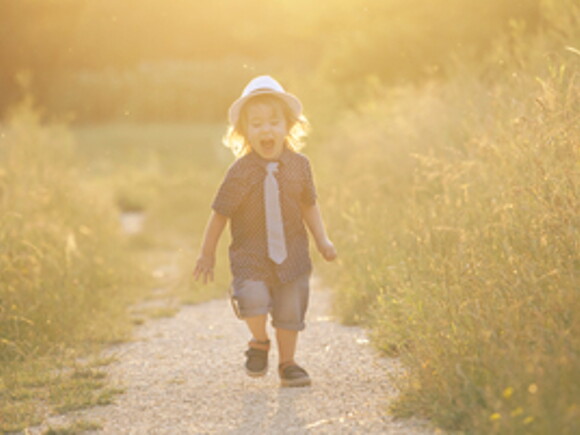If you think that babies just "take it easy" for months, then think again. Each month (or even each day!) brings new skills and unprecedented progress. Just some of the reasons for proud parents to never tire of marvelling over the "un-be-live-able" ability of their little one. However, worry soon sets in if your little one is behind in any one major developmental stage (talking, walking, potty training, eating alone) compared to friends' children! Or perhaps your baby refuses to eat fruit and vegetables?!
Alexandre Prouteau, psychomotrician in Versailles (78), deciphers your little one's progress.
Why and how does a baby smile, babble, sit up or walk for the first time?
All children develop from the tops of their bodies to the bottom, and from the middle of the body to the tips of fingers and toes. Being aware of this fundamental principle makes it easier to understand how your child develops and to understand how various skills are acquired. In addition to this "technical" explanation, the thing that incites children to develop most is the stimulation and desire to discover the world and to become independent. All of the senses come together in this exploration: hearing, smell, touch, taste and sight. They do not function separately, even if certain senses are sharper than others at birth, or even inside the womb, notably smell, hearing and taste. The "first times" do not depend on a single factor but are the result of combined progress.
From what age does baby recognise faces?
Sight is the last sense to develop. At 2 months, your baby can only see the round shape of the head and eyes. They react to stimuli and do not really recognise their mother, except by her smell and voice. At this stage, your baby will experience several "first times" almost all at once. The social smile when baby reacts to stimuli: their head moves from side to side as they observe the world around them. At last at 3 months they are able to identify the faces of their family members.
Why do baby's grab onto everything and anything they find at around 3 months?
To begin with, completely by accident! Your baby grabs onto objects without meaning to, and thus discovers another revolutionary aspect to their world; their hands come into their field of vision! Your baby can clasp their fingers around an object, this is why it is necessary to stimulate them to enable them to discover this extraordinary ability!
When should I start feeding baby solids?
At 4 - 6 months, oral development comes with the very first experience of eating solids, preceded by the timely arrival of the first teeth! At 9 months, your baby begins tasting their first rusks.
What incites babies to start walking?
As a psychomotrician, I can tell you that what motivates babies to walk for the first time, is the will to become independent and to imitate their parents, and this applies to all other skills also.
Between 6 and 10 months, your baby can turn onto their tummy, then sit up alone (at around 7 months) and is able to place their hand in front of them as they turn over. Towards 10/11 months, come the first hesitant sideways steps while holding onto furniture or the bars of the playpen.
They will improve their psychomotor performances through ten major developments:
crawling,
moving about on all fours,
walking upright: between 13 and 18 months on average in the UK,
running,
jumping,
climbing,
carrying,
pulling,
pushing,
and throwing!
Sometimes children "jump" certain stages, such as moving about on all fours.
What incites babies to pronounce their first word?
Language learning in babies depends on their ability and environment. Children that have just witnessed the arrival of a little sister or brother will take longer to start talking. Others will talk like a book at 18 months.
On average:
at around 15 months, babies pronounce their first words, the well-known two-word utterances: "dadhat" to mean daddy's hat. Only the parents or even only the mother understand these words, each bringing intense emotion, as they are the confirmation of genuine interaction between the child and their family.
at 24 months, baby forms phrases using a subject and a verb and uses "me" and "you".
At 3 years, children know around 250 words and speak in the first person. It is the quality of the dialogue with their parents that incites children to speak. Mealtimes are highly important in this learning stage, especially in European countries. The richer the dialogue the more children learn to take part in mealtime conversations.
What games can I play with my child to support their development and progress?
There is no point jumping steps or trying to boost your baby's development as all babies develop at their own rate. To help your baby, from birth, I advise talking about what is going on around them. When doing this you should place yourself 30 cm from your baby's face so they can see you properly.
At around 3 months, baby is comfortable in a baby bouncer of the simplest kind. If it is too soft it will prevent your baby from moving their shoulders properly. They love mobiles, light rattles with holes in which they can insert their little fingers.
From 5/6 months, the activity mat is ideal for baby's first urges to move around.
At around 12 months, a stable walking trolley helps baby gain self-confidence in walking. I am not in favour of the baby walker as babies are not able to put their feet down properly and as it provides uncontrolled and therefore dangerous mobility. It is also the ideal age for building toys and pretending games such as a tea set, dolls, etc.
At around 15-18 months, children are able to use pencils, water-based paint and brushes. Not forgetting counting rhymes which in my opinion are too often disregarded as they help children count with their hands and develop their imagination. Up to 3 years, games must encourage agility and creativity while building tone.
Does psychomotor development also depend on diet?
Babies discover their mouth, considered as a sixth sense, at 5 months enabling them to put all senses to use at once. This knowledge enables children to continue their psychomotor development and to construct their identity. Thus the importance of introducing solids by combining different textures, colours, shapes and tastes on a daily basis. A healthy balanced diet is also essential to development of mobility as excess body weight will hinder and limit movements required for normal motor development.
Get full access to expert-backed nutrition support
My feed
Curated content based on your preferences
Feeding guidance
Learn about various feeding options and what each means for you and your baby
Tailored Practical Tools
Try our tailored practical tools to guide you through the parenting journey.
My First 1000 Days club
Customised notifications, reminders and newsletters
Still haven't found what you are looking for?
Try our new smart question engine. We'll always have something for you.


